From theory to practice: how legal clinics explore the legal needs of communities
Publication date: September 29, 2025
Author: Yuliia Bilyk, Communications Manager, Legal Development Network
As part of the initiative “Strengthening the capacity of legal clinics to provide people with access to legal services in communities across Ukraine,” three legal clinics were given the opportunity to conduct their own sociological research. These are the legal clinics of the H.S. Skovoroda Kharkiv National Pedagogical University, the Yaroslav Mudryi National Law University, and the Sumy State University.
The data obtained will help the clinic teams better understand the legal needs of their target groups and plan their work in accordance with the current requests of their clients. Find out in this article how the preparatory stage for conducting research is going, what developments the legal clinics already have, and what value they see in the sociological direction of the project.
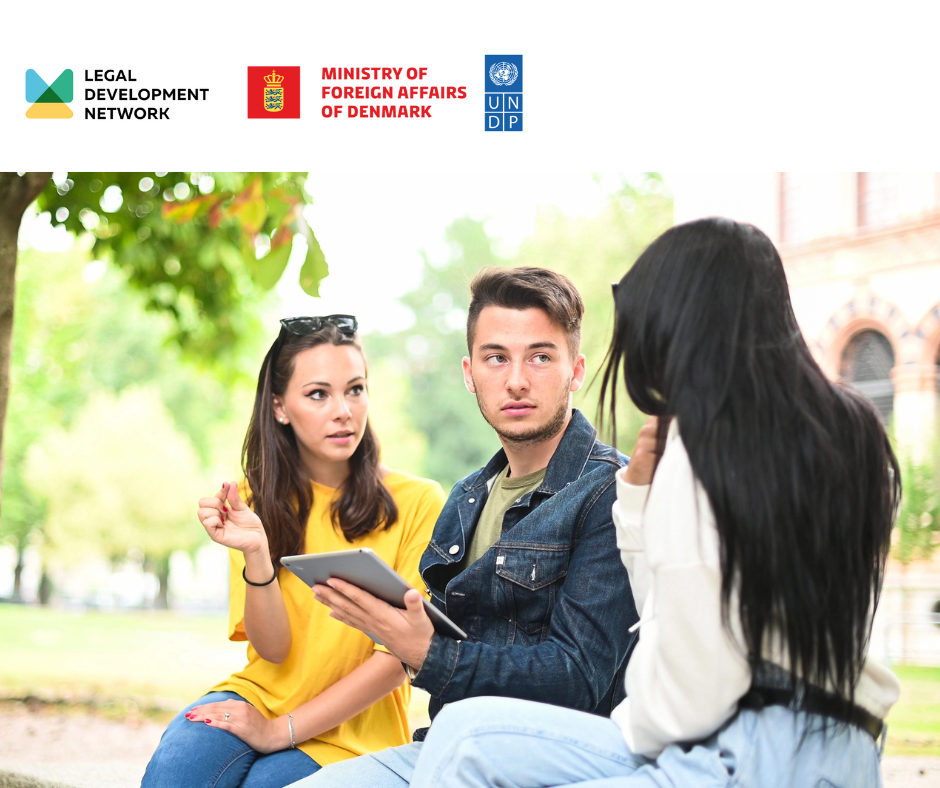
Thirteen legal clinics from five regions in southern and eastern Ukraine are participating in the project “Strengthening the Capacity of Legal Clinics to Provide Access to Legal Services in Communities in Ukraine,” which is being implemented by the Legal Development Network with the assistance of the United Nations Development Program (UNDP) in Ukraine and financial support from the Danish government. The teams of all clinics, including teachers, students, and representatives of partner civil society organizations, have undergone theoretical training. Among other things, the training includes the development of skills in conducting sociological research. Project experts Marina Shpiker and Kateryna Yeroshenko focused their webinars on general principles: how to plan research, what factors to consider when compiling a sample and developing tools.
Based on the knowledge gained, each of the legal clinic teams chose a topic and prepared a research concept. The most in-depth, thorough, and finalized concepts were those of three legal clinics, whose sociological research received support from the project.
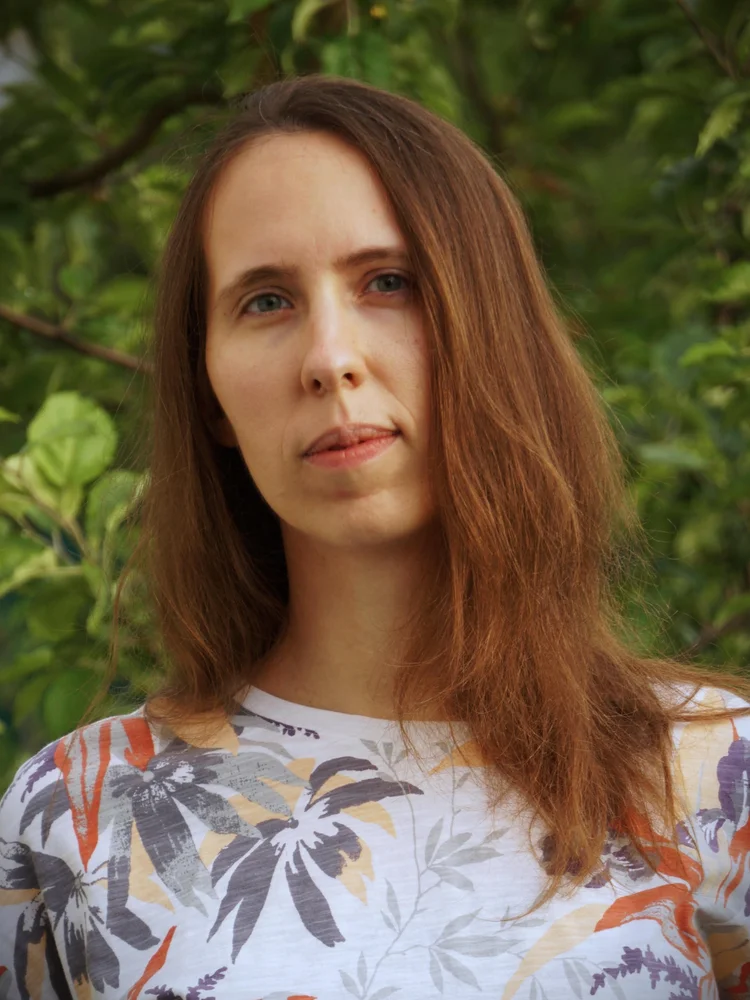
“All legal clinics gained basic knowledge about the process of concept development, data collection, and analysis. In my opinion, the concepts presented by many clinics may have practical value for further legal support of clients in communities. In particular, I remember the work of the legal clinic team at Zaporizhzhia Polytechnic National University, Petro Mohyla Black Sea National University, and the Pro Bono legal laboratory at Daly East Ukrainian National University, which planned to thoroughly research the legal needs of their potential clients. Although the sociological research concepts of these clinics did not receive support from the project, they have high potential to implement their ideas independently,” says sociologist and project expert Marina Shpiker.
The experts continue to work with the selected teams, who, in turn, test their theoretical knowledge in practice. Marina Shpiker advises legal clinics on the methodological design of the research, such as the correctness of questionnaire design and the principles of respondent selection, while Kateryna Yeroshenko coordinates the organizational process of preparing for field research. By the end of September, the teams will have research concepts, completed questionnaires, and guidelines for focus groups.
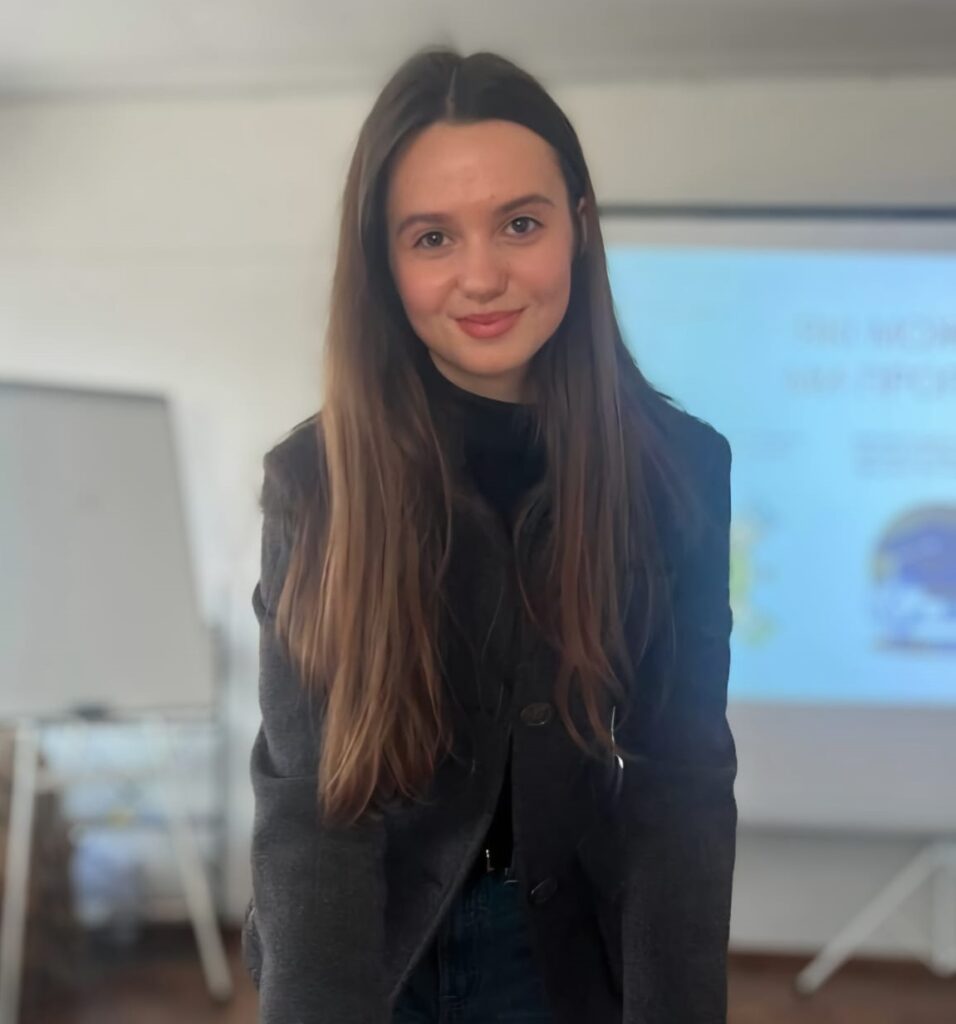
“We are researching the level of legal awareness and access to justice among older people in the Kyiv district of Kharkiv. We expect that the results of the study will help us identify the problems faced by city residents. This will allow us to make the legal assistance provided by the legal clinic more targeted and effective. Our team has already developed a guide for focus groups and a questionnaire for conducting interviews,” says a senior student consultant at the Yaroslav Mudryi National Law University (NLU) Legal Clinic Polina Doroshenko.
The choice of topic for the NYU Legal Clinic was determined by previous experience in advising clients, a significant proportion of whom are people of pre-retirement and retirement age. These are residents of Kharkiv who remain in the community during the full-scale invasion and, accordingly, are victims of the war. The clinic seeks to identify legal issues that may not be obvious at first glance.
Another Kharkiv clinic, at the H.S. Skovoroda Kharkiv National Pedagogical University (KNPU), is researching the implementation of the right to inclusive education for children with special educational needs (SEN) in the Kharkiv region during wartime.
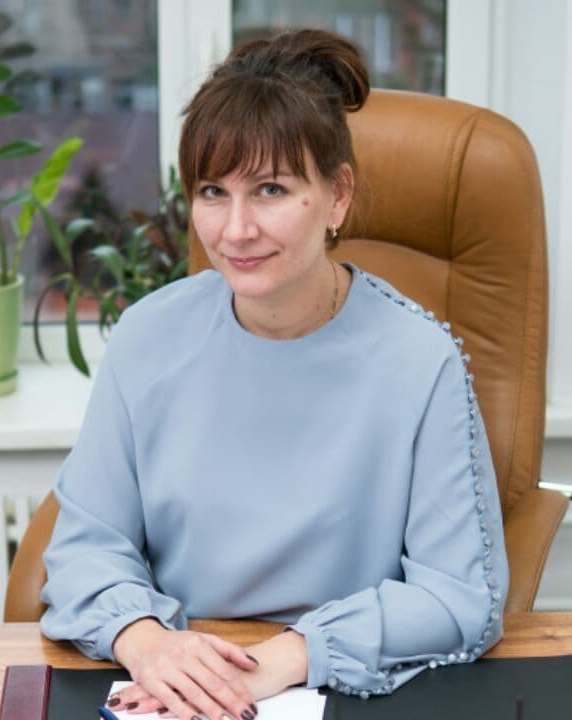
“We want to find out what barriers children and their families face, to what extent communities are able to provide inclusive education, and how distance from the front line affects the availability of educational services,” says Tetyana Golovan, head of the legal clinic. “This topic was chosen because in our practical work we see numerous violations of the rights of children with SEN and a lack of systematic solutions on the part of the state and local authorities. At the same time, there is no quality empirical data on this issue, which is necessary for the formation of effective policies and human rights initiatives.”
Currently, the Kharkiv National Pedagogical University Legal Clinic is finalizing data collection tools. The team has already formulated research questions, hypotheses, and a sampling algorithm, and is completing the preparation of questionnaires and guides for focus groups. Along with the support of expert sociologists, the efforts of the legal clinic are supported by mentor Inna Kolesnik, a lawyer and public figure. The mentor notes that despite the military danger posed by the fact that clinic representatives are located in different cities, the team does not perceive this as a challenge and is making full use of the research preparation process for its own development.
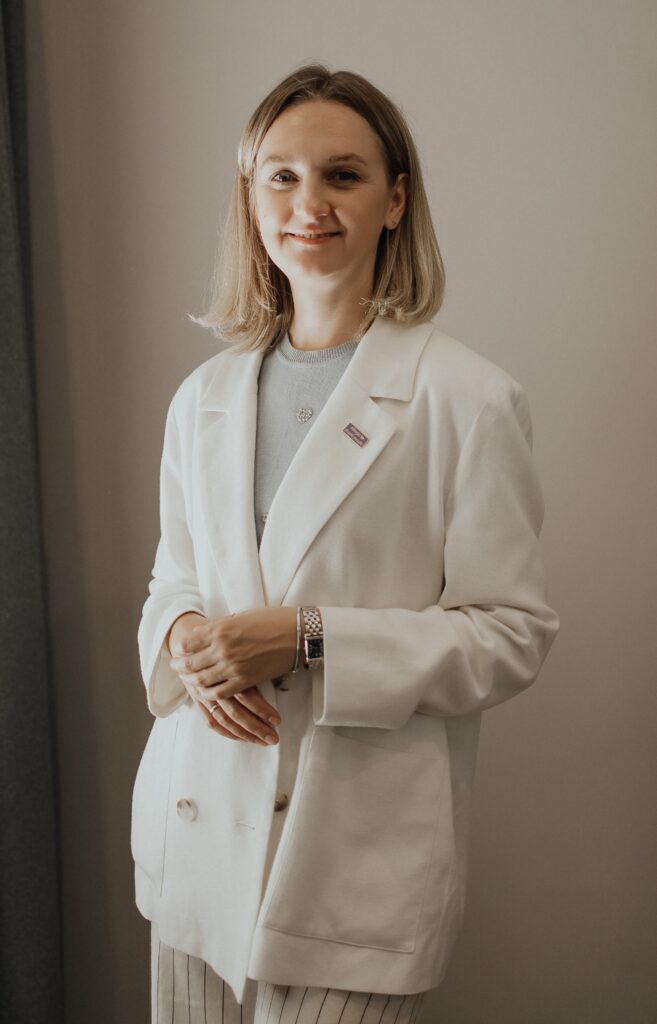
“Clinicians were worried that their concept might not be selected for research within the project. Now they are making the most of this opportunity. The legal clinic has experience, professionalism, and a strategic vision for its future. They have successfully integrated all of this into their sociological work. As a mentor, I actively work with the team so that they do not remain at the level of perfectionism and have more confidence in their actions. After all, their work is actually very high quality,” says Inna Kolesnik.
Natalia Yesina, mentor at the third clinic, who is preparing her own research, has high hopes for the sociological component of the project as a source of applied data for daily practice. The specialized legal clinic on war-related issues at Sumy State University (SSU) aims to investigate the problems faced by people whose homes have been damaged or destroyed, when recording damage and submitting claims for compensation, as well as to determine the level of awareness and support needs of such citizens.
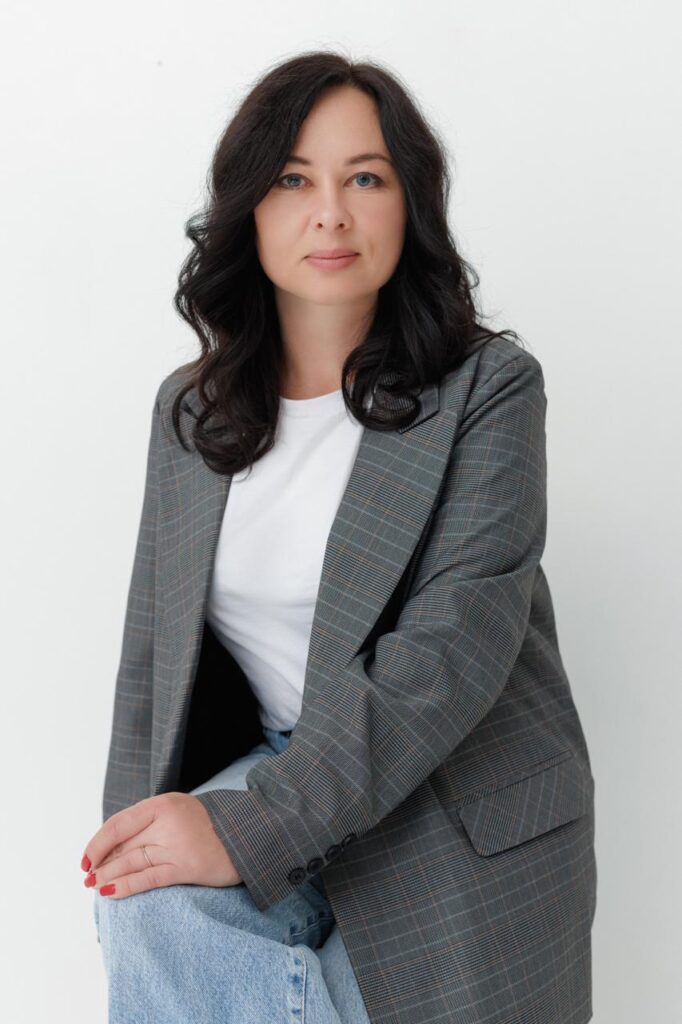
“The sociological study will help the Sumy State University Legal Clinic understand the real barriers and problems faced by Sumy residents when recording damage and obtaining compensation. Destruction in the community occurs daily, and recently we have been suffering from shelling every night, so in the course of the research, the team will not only collect data but also help people understand the algorithms of action. The results obtained will make it possible to adapt the clinic’s work to real needs, create understandable information materials, and improve student training. In addition, the project will help strengthen cooperation with local authorities, partner organizations, and the community as a whole,” notes Natalia Yesina.
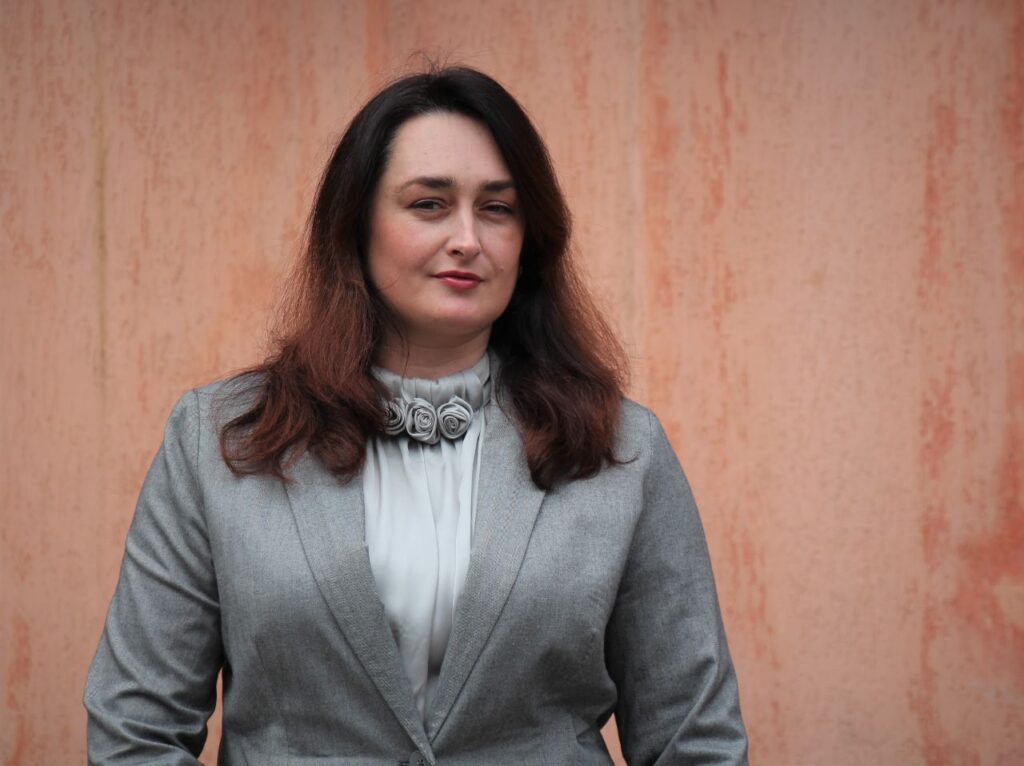
“Thanks to our participation in the project, we were able to prepare the concept of our research, questionnaires for surveying affected residents of the Sumy city community, determine how we would select 257 respondents, and prepare guides for in-depth interviews: separately for affected residents and separately for representatives of local government, law enforcement agencies, lawyers, and partner civil society organizations. We are also deciding on the format of the interviews, including the possibility of involving people who directly contact our legal clinic: how we will obtain informed consent, who in the team will be the interviewers,” says head of the legal clinic at Sumy State University Lyudmila Rudenko.
According to Lyudmila Rudenko, the Sumy State University Legal Clinic plans to use the data obtained to develop simple step-by-step instructions for documenting destroyed housing and submitting claims for compensation. These instructions will serve as guidelines for people who are experiencing tragic events, are under stress, and therefore cannot always act logically. Another result of the study may be further training at the legal clinic for local activists, village heads, heads of condominium associations, volunteers — all those who are the first line of information for affected people.
Throughout October 2025, the field stage of sociological research by legal clinics will take place. Trained interviewers will go to their target audiences to learn firsthand about their life challenges and legal problems. We will tell you about how this process went, whether everything went according to plan, and what the data shows in our next articles.
This material was prepared as part of the initiative “Strengthening the Capacity of Legal Clinics to Provide Access to Legal Services in Communities in Ukraine,” implemented by the Legal Development Network with the assistance of the United Nations Development Program (UNDP) in Ukraine and financial support from the Government of Denmark.
The main photo: https://depositphotos.com/ua
P. S. In June 2024, the Legal Development Network (LDN) launched a crowdfunding campaign, Recovery of The South of Ukraine , as part of the crisis response program #StandWithUkraine.
You can Recovery of The South of Ukraine |
If you have notices an error on the web-site, please, highlight the text and press ctrl-enter.
Have you found your solution? Help others!
Print a poster
Print and place the Network's poster on a notice board in your entrance hall
Become a volunteer
Become a volunteer and assist others in finding problem solutions
Do you need a consultation ?
Online chat
Ask question and one of the LDN's lawyers
will answer it.
Chat's schedule: from 10 to 16
every day
Chatbot
Ask questions via LawLink Bot in any convenient way. LawLink Bot is a smart and digital legal assistant created by the Legal Development Network.

Our initiatives
The Legal Development Network implements comprehensive projects aimed at strengthening human rights, developing capable communities, and building sustainable tools for access to legal aid. We work at the intersection of advocacy, legal education, and local coordination of humanitarian response.
